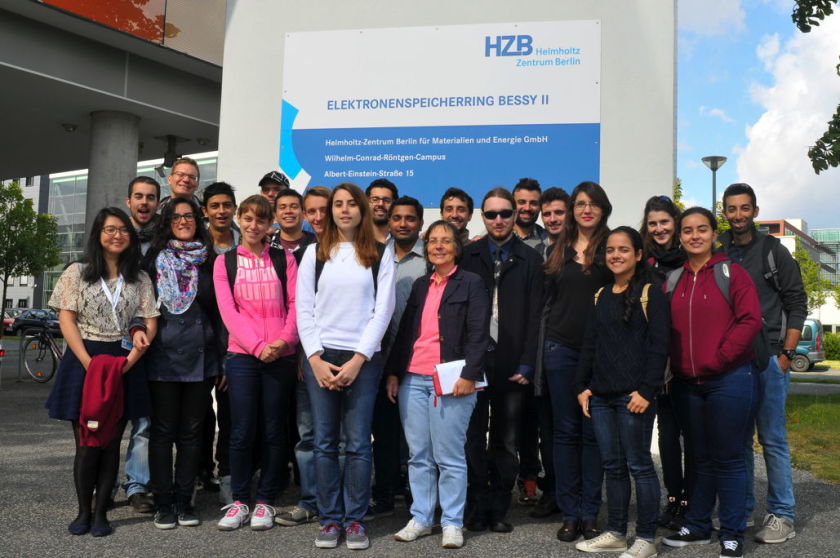Final spurt of Summer students blog

Summerstudents after their visit of BESSY II. © Klaus-Martin Höfer
A new blog features the experiences of HZB’s summer students in 2014. In total 24 students have come from Japan, Denmark, India, Spain, Greece, Russia or other countries. For 8 weeks, during August and September, they are working on a project in a science team at the HZB. They are young and motivated, willing to sacrifice their summer holidays and to spend them in a lab instead!
But they do not only make their first steps in science, they are also participating in a communication project, the hzb2014summerschool - Blog: Some of them do write about life in Berlin, others about their first research experiences. Up to now, the blog contains 22 posts, 24 comments and has had more than 1000 visitors.
These last two weeks, we expect more posts, more traffic and more comments. The summerschool-blog project is not only entertaining and nice to read for future students for instance but provides aslo an informal training of communication skills.
Please do have a look!
The Blog: http://hzb2014summerschool.wordpress.com/
arö
https://www.helmholtz-berlin.de/pubbin/news_seite?nid=14039;sprache=en
- Copy link
-
New Helmholtz Young Investigator Group at HZB on perovskite solar cells
Silvia Mariotti is returning to HZB as head of the new Helmholtz Young Investigator Group ‘Perovskite-based multi-junction solar cells’. The perovskite expert, who was previously based at Okinawa University in Japan, aims to advance the development of multi-junction solar cells made from different perovskite layers.
-
Excellent work-life balance continues
On 17 June 2025, the certificates for the ‘berufundfamilie’ audit were awarded in Berlin. HZB received an award with distinction for its long-standing efforts to promote a work environment that supports work-life balance. The audit is regarded as a seal of quality for the systematic design of family- and life-phase-conscious HR policies.
-
Georg Forster Research Fellow explores photocatalysts
Dr. Moses Alfred Oladele is working on photocatalysis for CO2 conversion in a joint project with the group of Dr. Matt Mayer, HZB, and Prof. Andreas Taubert at the University of Potsdam. The chemist from Redeemer's University in Ede, Nigeria, came to Berlin in the summer of 2024 with a Georg Forster Research Fellowship from the Alexander von Humboldt Foundation and will work at HZB for two years.
